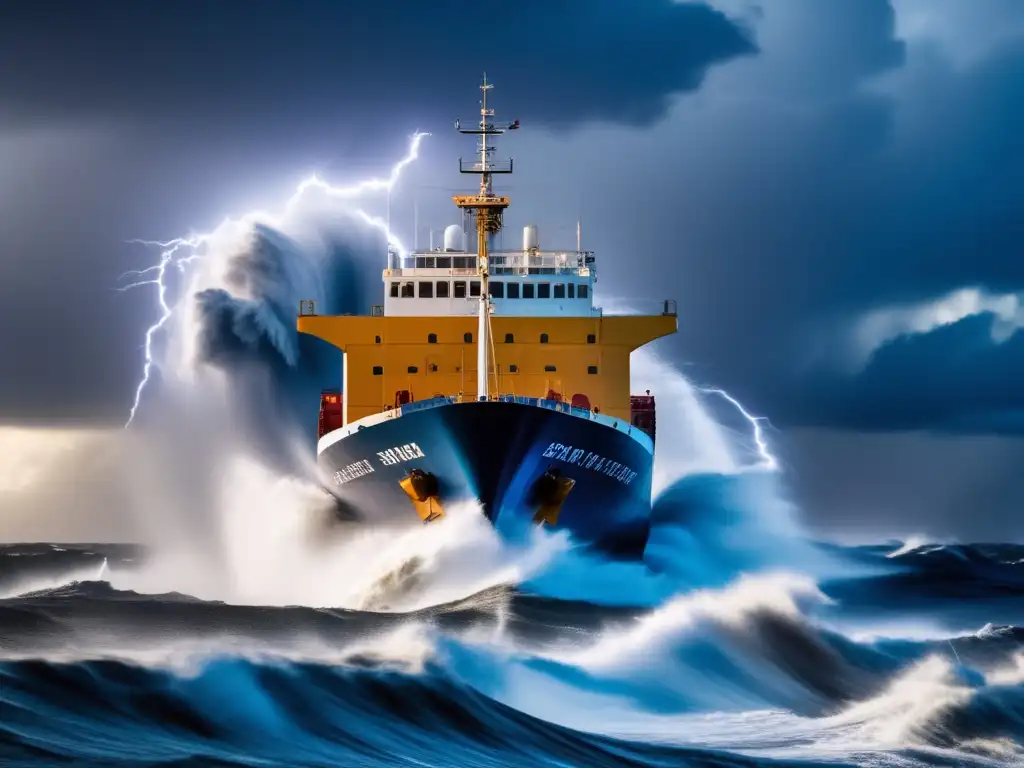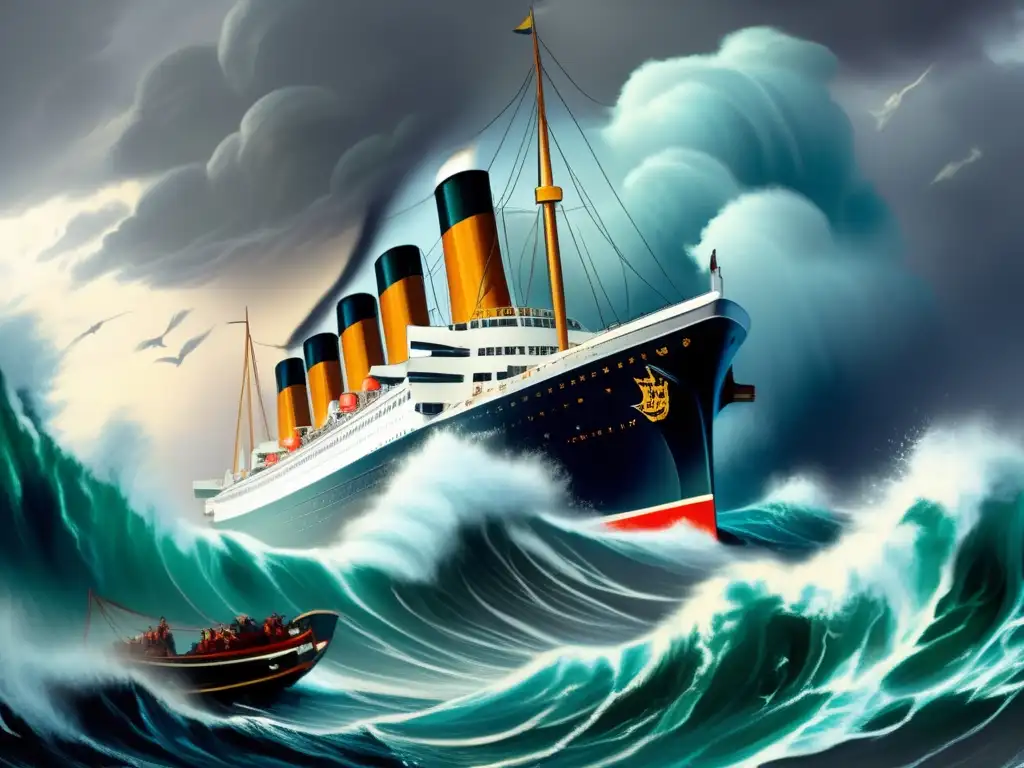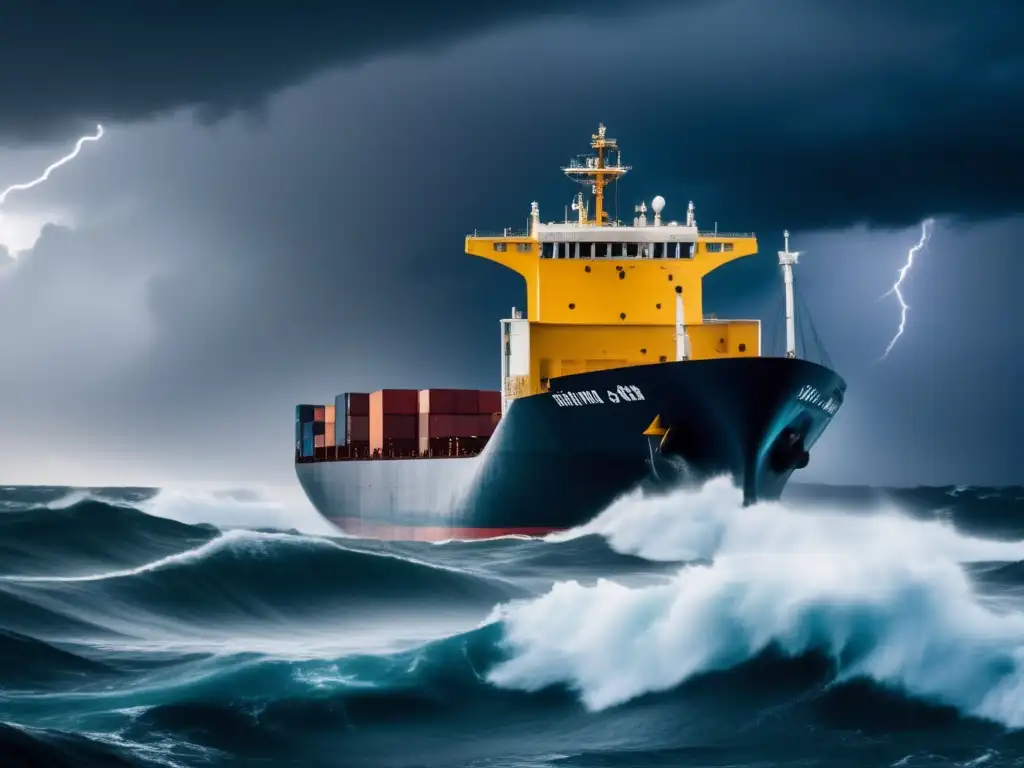Hurricanes And Shipping: Navigating The Storm

Hurricanes and Shipping: Navigating the Storm
Introduction
When hurricanes strike, they have the potential to cause catastrophic damage and disrupt entire communities. However, hurricanes don't just affect people on land; they also impact the shipping industry, which is responsible for transporting goods across the world. In this article, we'll explore how hurricanes affect shipping and what measures can be taken to mitigate the risks.
The Basics of Hurricanes

What is a Hurricane?
A hurricane is a type of tropical cyclone, which is a rotating storm that forms over warm ocean waters. They are characterized by strong winds, heavy rain, storm surges, and flooding. Hurricanes are classified into categories based on their wind speed, with Category 5 being the most severe.
How do Hurricanes Form?
Hurricanes form when warm air over the ocean rises and cools, forming clouds. As the warm air rises, it leaves behind an area of low pressure, which draws in more warm, moist air from the surrounding area. This process continues until a system of thunderstorms forms, which may eventually develop into a hurricane.
When do Hurricanes Occur?
Hurricane season in the Atlantic typically runs from June to November, with the peak occurring in September. The Pacific hurricane season generally runs from May to November, with the peak occurring in August and September.
The Impact of Hurricanes on Shipping

Disruptions to Shipping Routes
Hurricanes can disrupt shipping routes by creating dangerous weather conditions that make it difficult or impossible for ships to navigate safely. When a hurricane is forecasted, ports may close, and ships may be rerouted to avoid the storm. This can cause delays in the delivery of goods and lead to economic losses.
Potential Damage to Ships
When ships are caught in a hurricane, they are at risk of sustaining damage or sinking. The strong winds and rough waves can cause cargo to shift, leading to instability and capsizing. Additionally, hurricanes can create dangerous conditions like lightning strikes and waterspouts, which further increase the risk of damage.
Increased Insurance Costs
Due to the high risk of damage from hurricanes, insurance costs for shipping companies can increase significantly during hurricane season. This can add to the overall cost of transporting goods and impact the profitability of the industry.
Measures to Mitigate Risks

Monitoring Weather Conditions
One of the most important measures that shipping companies can take to mitigate the risks of hurricanes is to closely monitor weather conditions. This includes keeping an eye on weather forecasts and alerts from government agencies like the National Oceanic and Atmospheric Administration (NOAA). By staying informed about approaching storms, shipping companies can make informed decisions about when to reroute or delay shipments.
Preparing Ships for Hurricanes
Ships can be made more resilient to hurricanes by taking certain precautions. These include securing cargo, ensuring that all equipment is functioning properly, and shutting down all non-essential systems. Additionally, ships can be outfitted with hurricane-resistant windows and reinforced hulls to better withstand rough seas and high winds.
Taking Out Appropriate Insurance
Shipping companies should ensure that they have appropriate insurance coverage that includes damage caused by hurricanes. This can help to offset the costs of repairs and minimize the impact of the storm on the industry.
Frequently Asked Questions

-
How do hurricanes affect shipping?
Hurricanes can disrupt shipping routes, cause damage to ships, and increase insurance costs for shipping companies.
-
What measures can shipping companies take to mitigate the risks of hurricanes?
Shipping companies can monitor weather conditions, prepare ships for hurricanes, and take out appropriate insurance coverage.
-
When is hurricane season?
Hurricane season in the Atlantic runs from June to November, with the peak occurring in September. The Pacific hurricane season generally runs from May to November, with the peak occurring in August and September.
-
Can ships be made more resilient to hurricanes?
Yes, ships can be outfitted with hurricane-resistant windows and reinforced hulls to better withstand rough seas and high winds.
-
What should shipping companies do when a hurricane is forecasted?
Shipping companies should closely monitor weather alerts and make informed decisions about when to reroute or delay shipments.
Conclusion
When hurricanes strike, they can have a major impact on the shipping industry, leading to disruptions in shipping routes, damage to ships, and increased insurance costs. By taking measures like monitoring weather conditions, preparing ships for hurricanes, and taking out appropriate insurance, shipping companies can mitigate the risks associated with these storms. As hurricanes become increasingly frequent and severe due to climate change, it's more important than ever to take steps to protect the shipping industry and ensure that goods continue to be transported safely and efficiently across the world.
Additional Resources

 Predicting The Unpredictable: The Challenges Of Hurricane Forecasting
Predicting The Unpredictable: The Challenges Of Hurricane Forecasting Dispelling Hurricane Myths
Dispelling Hurricane Myths The Legacy Of Hurricane Sandy: A Retrospective Analysis
The Legacy Of Hurricane Sandy: A Retrospective AnalysisIf you want to discover more articles similar to Hurricanes And Shipping: Navigating The Storm, you can visit the Basic knowledge about hurricanes: category.
Leave a Reply

Articulos relacionados: